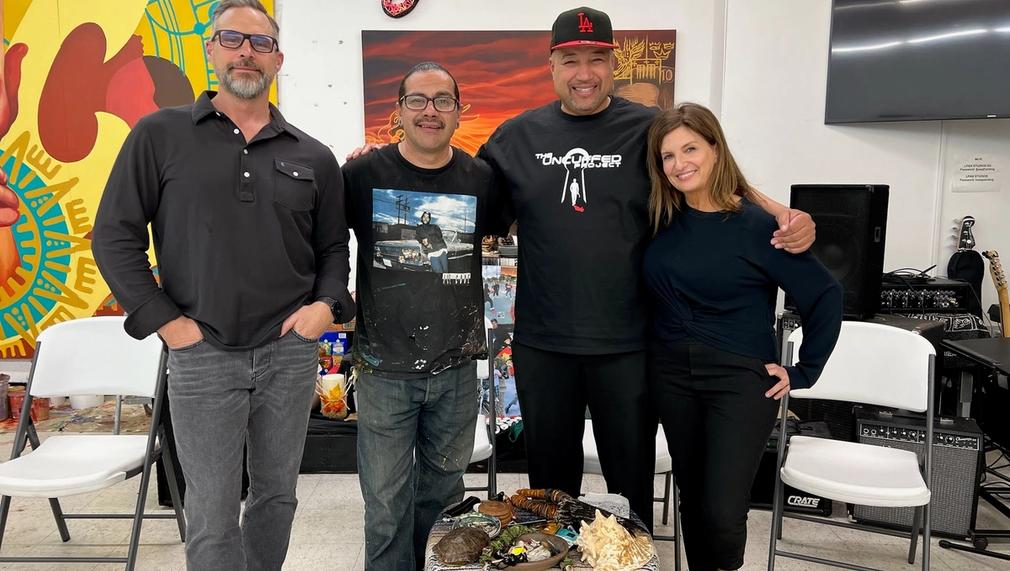THE RACIAL HEALING CHATLINE
THE RACIAL HEALING CHATLINE is a safe space for people who have experienced acts of hate or bias and identify as members of a minoritized racial/ethnic group. Acts of racial/ethnic bias and hate are on the rise. Black Indigenous People Of Color (BIPOC) folks need to have 24/7 telephonic and digital access with trained peer volunteers who can validate and support them. This early intervention can prevent the escalation of the emotional distress of race-based trauma into more severe mental health disorders such as depression and anxiety.

What is the primary issue area that your application will impact?
Mental health
In what stage of innovation is this project, program, or initiative?
Pilot or new project, program, or initiative (testing or implementing a new idea)
What is your understanding of the issue that you are seeking to address?
Research indicates that 63% of Black Americans, 47% of Latinx Americans, 6% of Asian Americans, 5% of American Indians or Alaskan Natives, and 4% of multiracial individuals have experienced at least one race-based trauma in their life. These incidents have significant impacts on well-being and mental health. Race-Based Traumatic Stress (RBTS) is associated with the development of many emotional challenges such as depression, anxiety, anger/rage, headaches, upset stomach, humiliation, difficulty sleeping, and nightmares to name a few. This is considered a major factor in the high prevalence of post-traumatic stress disorder (PTSD) in BIPOC. Currently, a major obstacle in the treatment of RBTS is that many BIPOC individuals tend to under-utilize traditional mental health services or have limited access to care. Therefore, they have a longer duration of illness and more acute symptoms when presenting for treatment and less access to culturally appropriate and evidence-based services.
Describe the project, program, or initiative this grant will support to address the issue.
The development of a telephonic/digital service specifically aimed at addressing the impact of RBTS is needed. It will increase the access and use of mental health services that are culturally appropriate and use evidence-based RBTS interventions. This approach will work to reduce the short- and long-term consequences of untreated or inappropriately treated RBTS. THE RACIAL HEALING CHATLINE will be staffed by trained peer volunteers who provide support for people who are not in immediate danger, emergency, or crisis but are feeling distressed about racist experiences in their daily lives. The volunteer provides active listening, validation, information on coping, and resources. It's a space where the caller can sort out their thoughts, de-escalate, or relieve some of their distress and negative feelings. Additionally, if the individual does not want to chat about the incident at the time of contact, the option to record/document the incident will be available either anonymously or given an ID# for future reference. Through targeted engagement, outreach activities, and training in BIPOC communities for volunteers, the number of BIPOC people who are trained in crisis intervention and trauma-informed interventions will be increased. Furthermore, the documentation of race-based incidents will be increased through THE RACIAL HEALING CHATLINE, especially for those that do not reach the level of a hate crime.
Describe how Los Angeles County will be different if your work is successful.
The benefits of THE RACIAL HEALING CHATLINE to the underserved BIPOC community in Los Angeles County are enormous. It will provide increased access to supportive services that address the impacts of racism directly. Other chatlines or warmlines focus on emotional support for multiple areas of distress (e.g., domestic violence, rape, suicide, etc.) in someone's life, but they don't specifically address racism or racial trauma and therefore may not have been trained in this area. It fills a needed mental health service gap for BIPOC communities that are experiencing higher rates of reported racially-motivated aggressive acts in the post-pandemic world. It could reduce the stigma of receiving mental health services because the service is staffed by peer volunteers and does not diagnosis or label people with mental illnesses. Additionally, there aren’t enough BIPOC therapists in the mental health care system to provide emotional support to everyone who has been harmed by race-based trauma.
What evidence do you have that this project, program, or initiative is or will be successful, and how will you define and measure success?
The initial success of this project will be measured by the numbers of BIPOC volunteers who are recruited and receive training. This grant will allow the utilization of 100-120 peer volunteers who live in the communities they will serve. Based on the promotores model of healthcare delivery, it was found that these community people increased the knowledge and skills of individuals and their communities. The impact of these volunteers is that they could provide support to thousands of Angelenos every year.
Approximately how many people will be impacted by this project, program, or initiative?
Direct Impact: 120.0
Indirect Impact: 104,000.0